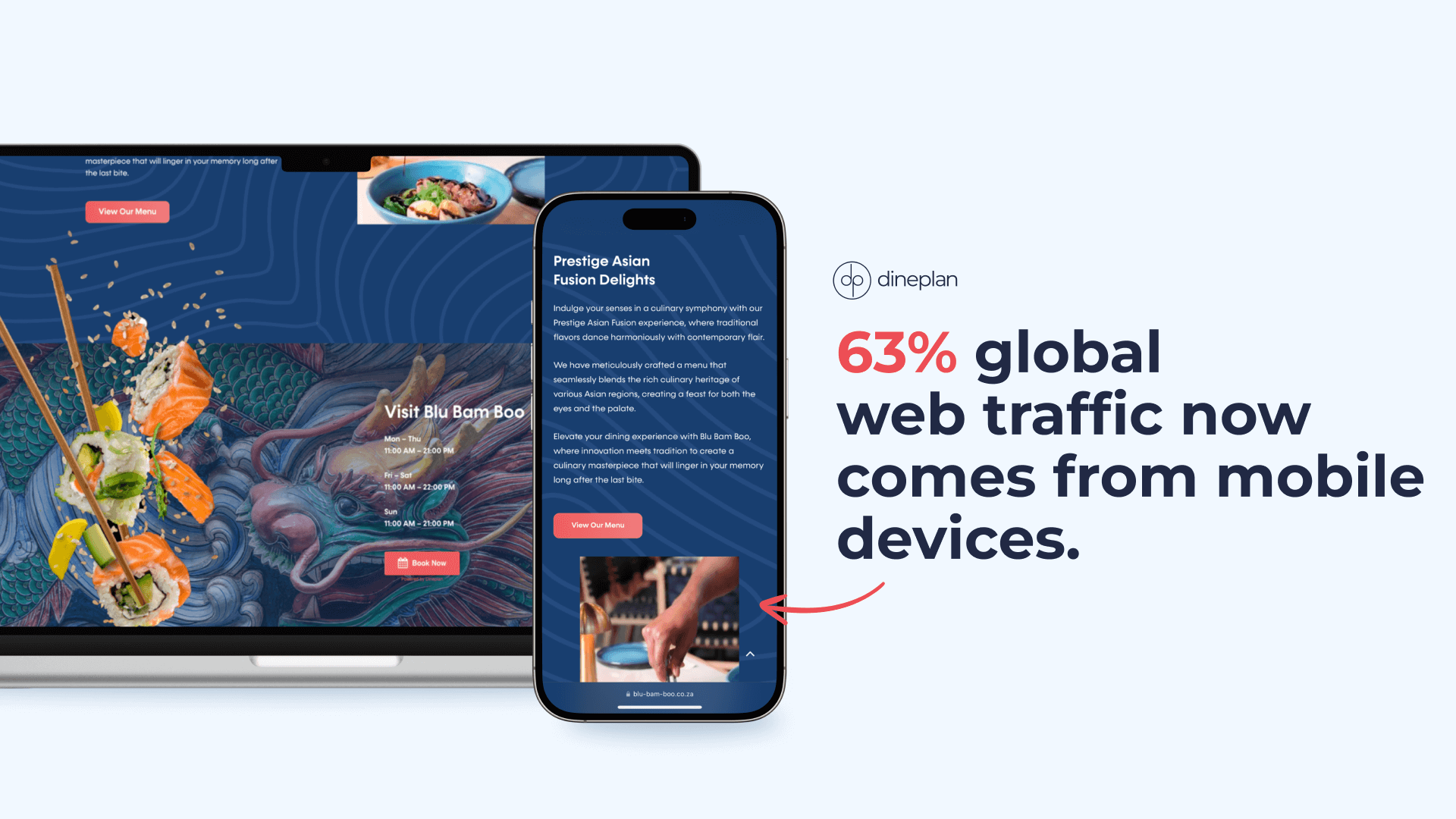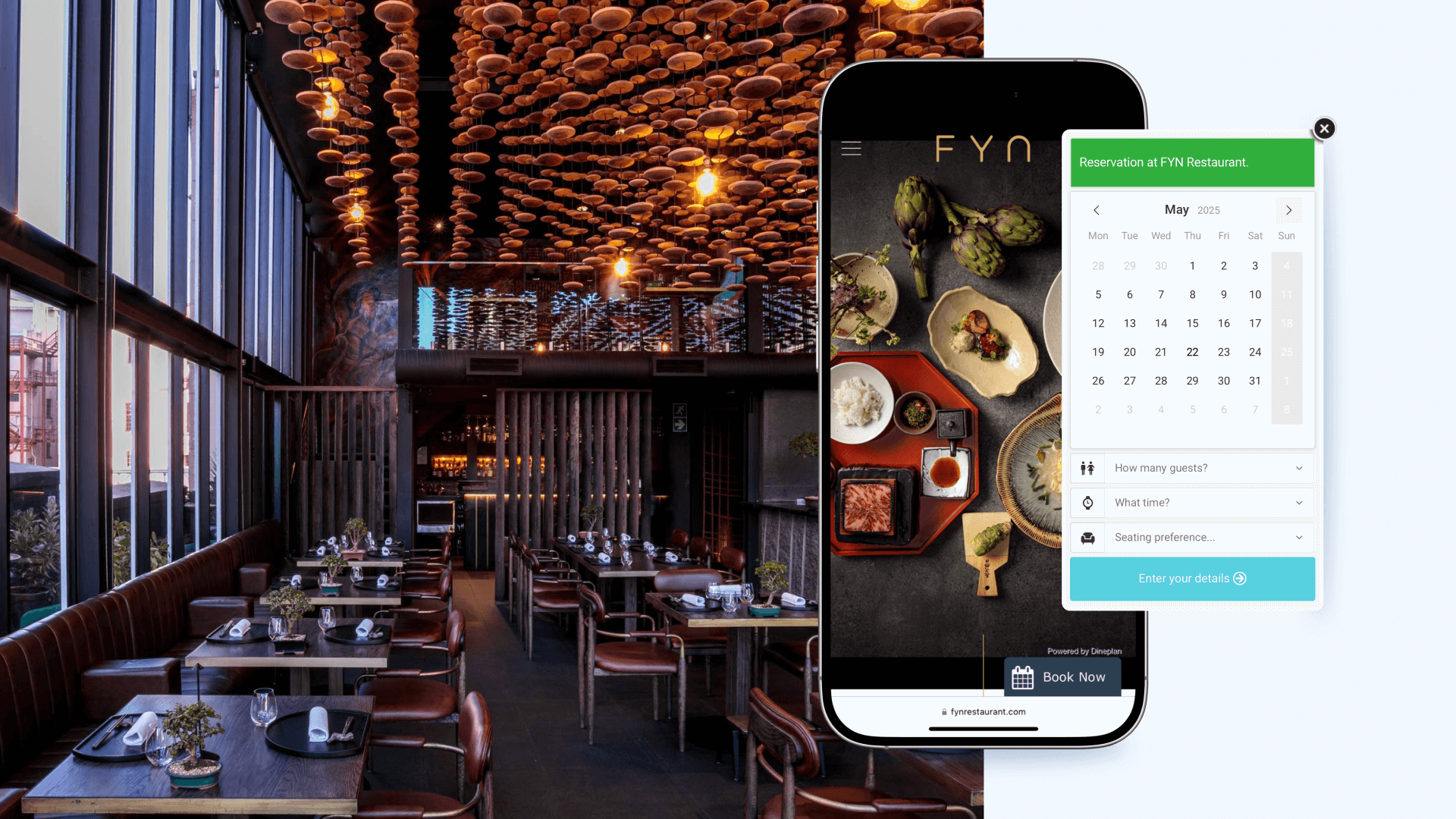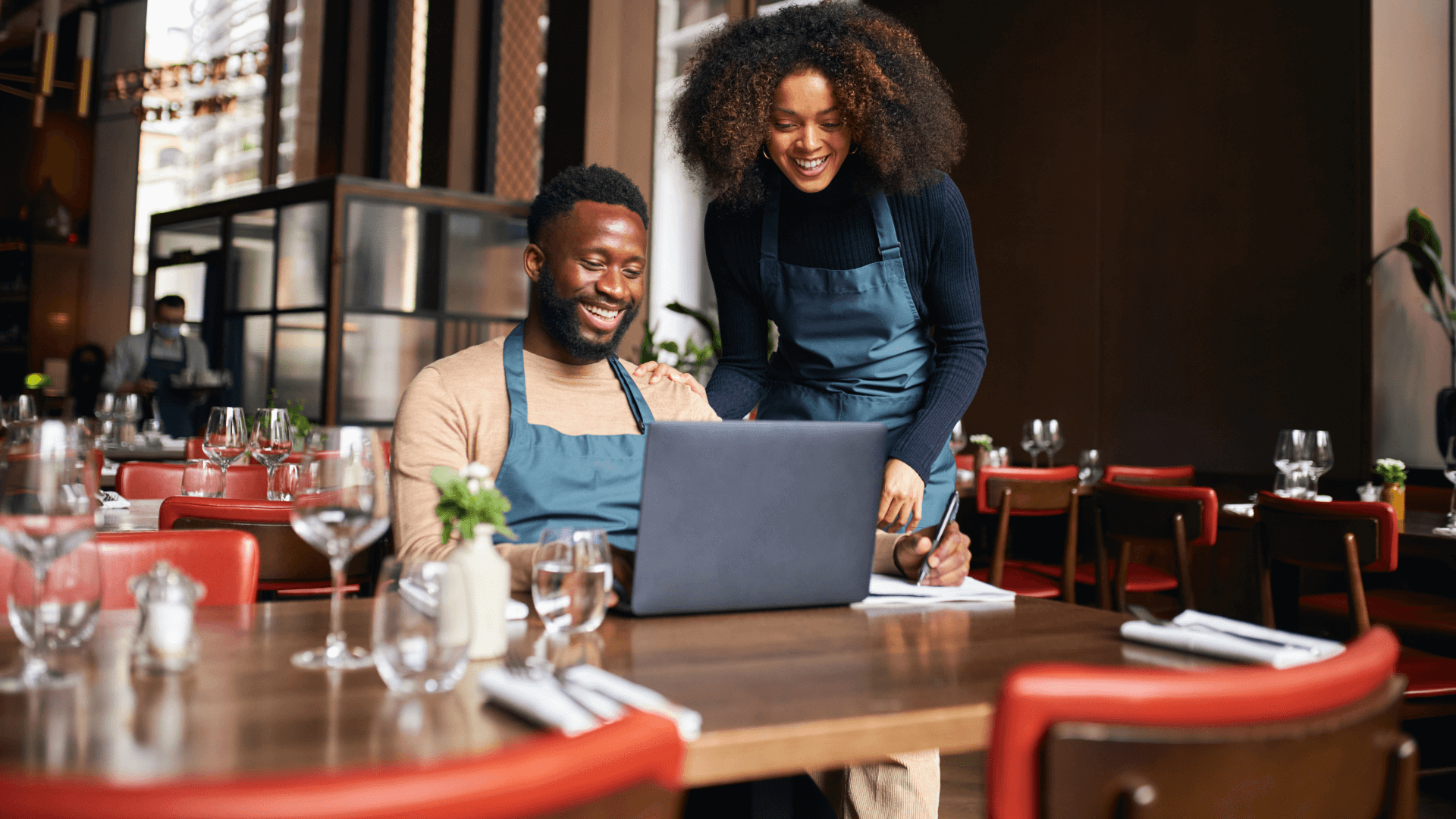As the digital space continues to shape how South Africans choose where to eat, it’s become increasingly clear that your website is just as important as your physical location or menu. Most importantly, it’s key to being discoverable online to the millions of people searching for restaurants each day.
It’s no longer just about being on social media – a well-maintained, mobile-friendly website ties it all together and gives diners everything they need in one place.
First impressions matter: Your website is your digital front door
For many guests, a website is the first impression they’ll have of a restaurant. In fact, a 2024 Dineplan study found that 78% of South Africans discover restaurants online, through social media, internet searches, and booking platforms like Dineplan.
It’s crucial that websites tell a clear story, are easy to navigate, and are optimised for mobile as over 63% of global web traffic now comes from mobile devices.

As of 2024, 63% of global web traffic comes from mobile devices. Source
Make booking a table effortless
Booking a table should be quick and simple. If a guest visits your site and has to dig around for a phone number or wait for an email response, chances are they’ll move on.
Using an online booking calendar (like ours) directly on your website makes life easier for everyone. Guests can check availability in real-time and reserve a table instantly – no phone calls, back-and-forth emails, or WhatsApps needed. This becomes especially useful during lunch service, when nearly half of all restaurant bookings are made – a time when your team is often too busy serving guests to answer the phone.
Nearly half of all restaurant reservations are made during lunch service (11 am – 3 pm), which can be challenging for restaurants to manage over the phone while serving customers.
It also caters to the 17% of diners who book outside of trading hours, like late at night or early in the morning, when there’s no one available to take a call or respond to an email. Having an easy, always-on booking option means you’re not missing out on those eager planners.

Dineplan’s booking calendar can be directly embedded into a restaurant's website, no plugins or software required. Source
Good photos = more bookings
You eat with your eyes first, right? The same goes for your website. High-quality images of your food, venue, and atmosphere can help seal the deal – and get you that booking!
Whether someone’s planning a date night, birthday dinner, or just a midweek meal, showcasing what they can expect builds trust and boosts the likelihood of them choosing your restaurant.
Help guests find what they need, fast
Don’t make guests search for important details. Display your phone number, email address, physical address or map, and operating hours clearly.
With many guests wanting to browse Facebook, Instagram, or TikTok before they commit, or DM you if they’ve got a quick question, a connected online presence (both online and on social media) makes this seamless for your diners, so be sure to link out to all your social media pages.
Display your phone numbers, email address, physical address or map, and operating hours clearly.
Want to show up on Google? Here’s how
When looking for somewhere to eat, most people will head to Google, Safari, or their search engine of choice to type in something like “Greek restaurants near me” or “vegan restaurants in Sandton”.
Having a clean, fast-loading website that uses the right keywords (and answers common questions) can help you climb those Google page rankings – and get found on the first page of results by diners actively looking to book.
To boost your chances of being discovered, it helps to understand the three key pillars of SEO:
- On-page SEO: This focuses on the content and structure of your actual website – like using relevant keywords, optimising headings, meta tags, and internal links. It’s about helping search engines understand what your restaurant is all about.
- Off-page SEO: This is all about how the rest of the internet views your site. Backlinks from other websites, social media mentions, and online reviews all help build your credibility and push your site higher in search rankings.
- Technical SEO: This covers everything behind the scenes – including your site speed, mobile-friendliness, secure browsing (HTTPS), and how easily search engines can crawl and index your pages.
In simple terms, on-page and technical SEO are what you control, and off-page SEO is how the rest of the web helps you get seen.
No need to be fancy – just functional
A beautiful website is great, but it’s equally important that it works, meaning:
- Quick loading time
- Works on all devices
- Menu, hours, and contact info are up to date
- There’s a clear booking option
- Guests can find what they need without searching
Websites that are confusing, slow, or outdated can turn guests away before they even give your food a chance.
In 2025, a restaurant’s website is a make-or-break tool. It helps a restaurant show up in search results, supports social media, and boosts bookings – all while giving diners the information they want, when they want it.
Whether you’re a new spot just getting started, or an established name in your area, investing time and money into your website is a smart move. It’s your 24/7 front-of-house team – and it’s often the reason someone chooses you over the restaurant next door.


0 Comments